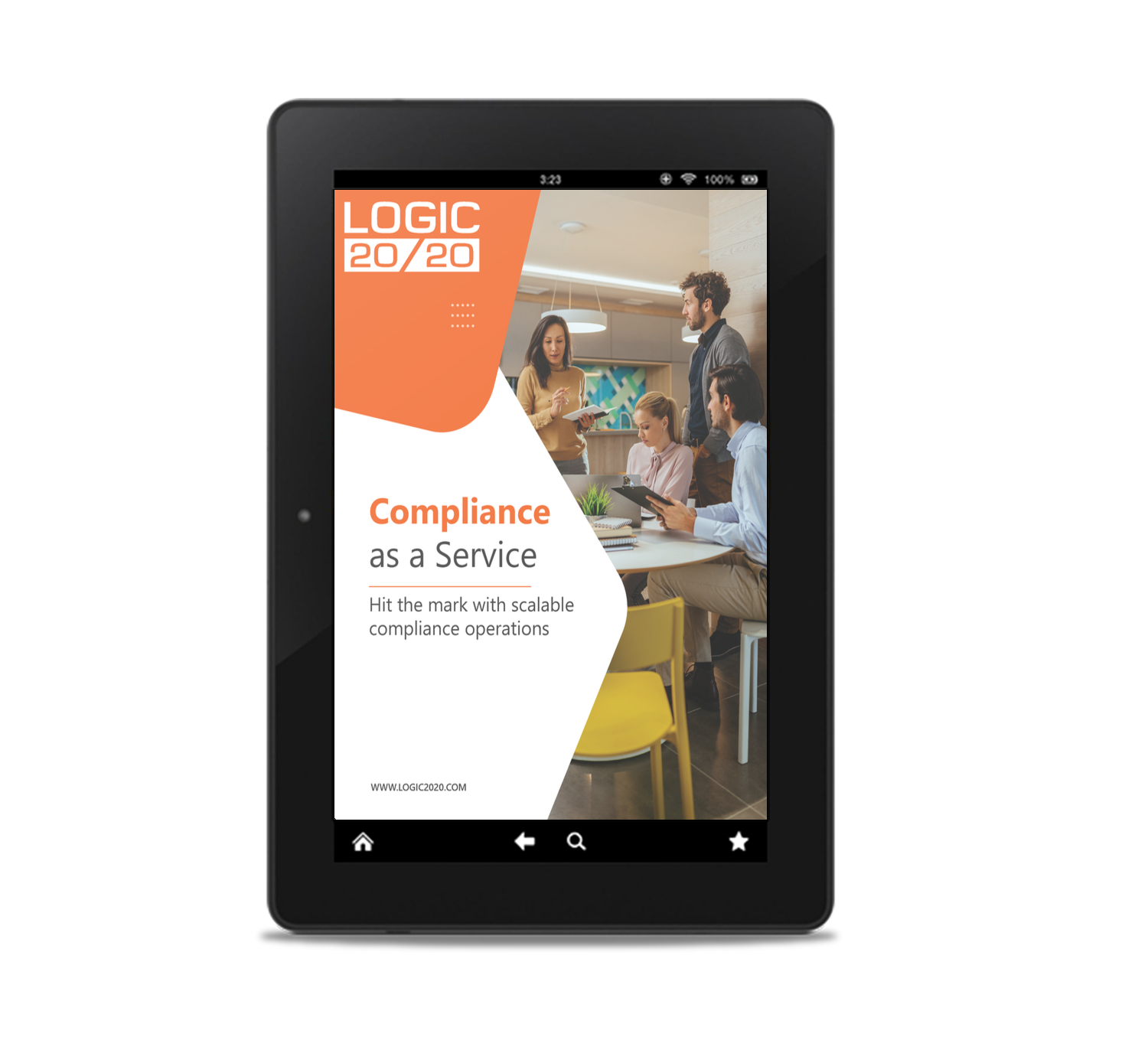10-minute read
Quick summary: A deep dive into the significance of environmental, social, and governance (ESG) reporting, the benefits it offers for businesses, and how to implement reporting frameworks
Environmental, social, and governance (ESG) reporting has become a popular topic of discussion, and with good reason. In an increasingly socially conscious world, ESG reporting has become a necessity for organizations aiming to thrive.
Compliance requirements, stakeholder expectations, and society at large are demanding that businesses be accountable for maintaining socially and environmentally responsible practices. In this article, we explore the significance of ESG reporting, the benefits it offers, and insights on how to implement reporting frameworks.
What is ESG reporting, and why is it important for businesses?
ESG reporting refers to a company’s disclosures of how its business activities impact the environment, society, and corporate governance. A sustainability report is a key tool for communicating a company’s ESG initiatives and progress to stakeholders.
So, what is an ESG report’s purpose? The report demonstrates a company’s commitment to transparency, which strengthens credibility with stakeholders. The United Nations Global Compact coined this acronym in 2004, focusing on sustainability, ethical practices, and corporate responsibility.
ESG reporting is mandatory in some countries, and it’s becoming a strategic necessity as it shapes consumer and employee behavior. Some consumers now make purchasing decisions with climate change and social justice in mind. Similarly, employees, especially younger generations, want to work for companies that share their values regarding environmental protection and social issues, including human rights as a core component of social responsibility addressed in ESG reporting. In one survey, 54 percent of employees said they would take a pay cut to work at a company with better values, and 56 percent would rule out a job at a company that has values conflicting with their own.
Organizations are responding by embracing ESG reporting—some driven by regulatory changes and others aiming to meet stakeholder expectations. Consider also the growing emphasis on implementing responsible business practices and ethical business practices as part of ESG reporting. In a recent survey, 75 percent of executives affirmed that sustainability drives better business results, and 76 percent agree it is key to their business strategy.
Article continues below.

Compliance as a Service (CaaS) ebook
Get expert insights on how to hit the mark with scalable compliance operations.
We will never sell your data. View our privacy policy here.
Understanding ESG reporting standards
As the world grapples with the effects of climate change and irresponsible corporate practices, ESG is becoming much more than an afterthought. It is now the lens that illustrates an organization’s efforts toward sustainability and social and ethical issues. Organizations can choose from a variety of ESG frameworks and ESG reporting frameworks to guide their disclosures.
In earlier days, ESG mainly focused on sustainability and reducing pollution, but more recently, it has expanded to encompass employee safety and labor standards. Selecting the right reporting framework or ESG framework is essential for consistency and comparability in ESG disclosures. As ESG continues to expand, developing a comprehensive sustainability strategy is increasingly important for effective ESG reporting. ESG factors are central to these frameworks and strategies.
Environmental metrics
In the wake of climate change, investors evaluate an organization’s efforts to protect the environment before giving a green light. As companies have been a big culprit in carbon emissions, it’s no surprise that investors are asking for reports on sustainability. One study found that as few as 100 organizations have contributed to 71 percent of the global greenhouse emissions menace.
These numbers are a call to action for companies to assess and report on their carbon emission reduction efforts. Reporting on energy usage involves detailing total energy consumption, energy sources (renewable vs. non-renewable), and efforts to improve efficiency. More companies are setting targets for reducing energy use and increasing reliance on renewable sources, which reflects a commitment to reducing their environmental impact.
Environmental metrics also cover
- Water consumption, efficiency measures, and conservation efforts
- Waste management practices, including waste generation, recycling rates, and initiatives to minimize waste production, while addressing sustainability risks associated with resource use and waste generation
Social metrics
The ‘S’ in ESG, representing social metrics, evaluates how a company interacts with its workforce and the community. A company’s workforce is an important part of operations, so it must address key social factors that reflect its commitment to employee welfare, diversity and inclusion, health and safety policies, and community engagement. These factors can directly affect a company’s financial performance and reputation.
Businesses are disclosing policies and programs that support employee welfare, such as mental health resources, flexible work arrangements, and benefits that cater to diverse needs. Increasing wages for lower-paid employees is another important part of a broader commitment to social responsibility and economic sustainability.
Community engagement often involves supporting social programs and stakeholder engagement through ESG initiatives, which help address local needs and foster positive relationships.
Communicating social performance and the impact of these efforts to external stakeholders, such as investors, community members, and regulators, is essential for building trust and demonstrating transparency.
Governance metrics
Governance standards in ESG ensure an organization is transparent and pursues integrity and diversity in its policy making and the selection of its leadership. Governance metrics demonstrate the company’s ability to manage risks and opportunities. Poor governance practices can result in corporate scandals, which erode trust and discourage investments.
Meta experienced this in 2021 when it was fined $276 million for privacy violations and failure to protect data on the Facebook platform.
A strong ethical framework fosters transparency, accountability, and trust to foster a positive corporate reputation. Implementing a code of ethics outlining expected behaviors helps businesses provide guidelines for ethical decision making.
As part of its governance initiatives, an organization should represent various demographics, including gender, ethnicity, and years of experience among board members. Diverse boards bring varied perspectives that enhance decision making and governance quality. Reporting on board composition helps stakeholders understand the organization’s commitment to inclusivity and fair representation.
Strong shareholder rights demonstrate that shareholder interests are properly represented in decision making. Investors will analyze these rights to ensure that management serves all stakeholders rather than only themselves. When shareholders feel the company does not respect their rights, they may withdraw their investments or choose not to invest in the future, which can adversely affect the company’s reputation as well as its financial standing.
Why ESG reporting is crucial for regulatory compliance and risk management
An ESG report gives businesses foresight into potential environmental, social, and governance risks, helping them comply with regulations while safeguarding their reputations.
The EU’s Corporate Sustainability Reporting Directive (CSRD) and the U.S. Securities and Exchange Commission (SEC) guidelines are making ESG reporting mandatory for many companies by establishing frameworks and requirements for sustainability practices. ESG compliance and adherence to ESG regulations are now key drivers for companies seeking to meet these obligations. In March 2024, the SEC adopted rules requiring registrants to disclose specific climate-related information in their annual reports and registration statements. The SEC plays a central role in mandating climate related financial disclosures and climate related disclosures, ensuring transparency and accountability in sustainability reporting.
Companies must also disclose their material Scope 1 and Scope 2 greenhouse gas emissions as part of SEC compliance. This requirement is subject to change, so businesses are monitoring the latest developments.
ESG reports provide a roadmap for safeguarding compliance while addressing risks that could undermine sustainability initiatives. They help ensure the company remains proactive in adapting to both regulatory demands and evolving market expectations.
Aligning with regulatory standards
Governments worldwide are making policies to support sustainability and requiring corporate disclosure in the form of ESG reports. Following are examples of regulations driving the need for ESG and sustainability services globally.
- European Union’s Corporate Sustainability Reporting Directive (CSRD): Effective January 2023, the CSRD expanded the scope of companies that must report on sustainability issues, including small organizations. It mandates them to provide detailed reports on environmental, social, and governance factors, thus ensuring that investors and stakeholders can trust the information.
- Sustainable Finance Disclosure Regulation (SFDR): SFDR is a European regulation that requires financial markets to disclose how they integrate ESG risks into their decision-making processes starting in March 2021. It aims to enhance transparency regarding sustainability-related initiatives within the financial sector to prevent “greenwashing.”
- U.S. SEC Guidelines: The SEC requires public companies to disclose climate-related risks in annual reports. This includes information on the governance of climate risks, material impacts on business strategy, and greenhouse gas emissions, thereby standardizing how companies report on these issues. Publicly traded companies are subject to formal ESG disclosure requirements, often integrated with financial reporting and auditing processes. The Task Force on Climate-Related Financial Disclosures (TCFD) also provides a voluntary framework that companies can adopt to improve transparency and meet emerging regulatory expectations.
- United Kingdom’s Streamlined Energy and Carbon Reporting (SECR): This framework requires large organizations in the UK to provide information regarding their energy use and carbon emissions, promoting transparency in corporate sustainability efforts.
- California Climate Corporate Data Accountability Act: Enacted in October 2023, this law requires large businesses operating in California to disclose information about toxic pollutants and carbon emissions in their facilities.
To enhance their ESG reporting practices, companies are working toward aligning with frameworks from the Global Reporting Initiative (GRI), the Sustainability Accounting Standards Board (SASB), and emerging global standards from the International Sustainability Standards Board (ISSB), including the IFRS Sustainability Disclosure Standards. These frameworks not only facilitate compliance with regulations, but also promote transparency, stakeholder engagement, and effective risk management. Businesses have the opportunity to demonstrate their commitment to sustainable practices while meeting the expectations of investors and regulators.
Risk management and long-term strategy
Disclosing ESG performance proves transparency and accountability, which earns the trust of customers, employees, and communities. Additionally, ESG reporting helps organizations identify and prevent risks, including environmental impact, supply chain vulnerabilities, and social or governance issues.
- Environmental risk identification: ESG reporting enables businesses to assess their environmental impact, the amount of carbon their activities release, their resource usage, and whether they dispose of their waste responsibly. By quantifying these metrics, organizations identify areas for improvement and develop strategies to protect the environment.
- Transparency in supply chains: ESG reports often include information about supply chain practices, allowing companies to assess risks related to sourcing materials ethically and sustainably. By engaging suppliers in environmental stewardship initiatives, businesses reduce vulnerabilities associated with labor practices or environmental degradation.
- Social responsibility: ESG reporting addresses employee welfare, diversity, and community engagement. By disclosing efforts to promote fair labor practices and inclusive workplaces, companies can shield their reputations from social controversies.
A robust ESG strategy strengthens resilience by identifying and addressing risks that could impact long-term success. It also fosters trust among key stakeholders by demonstrating the organization’s commitment to ethical and sustainable practices.
How to implement ESG reporting
ESG reporting can be a complex process without a structured approach. Businesses must be thorough and accurate in collecting, analyzing, and reporting their data. Here’s a practical guide to get started:
1. Collect ESG data
Begin by identifying which environmental, social, and governance metrics are most pertinent to the organization. Common metrics include carbon emissions (Scope 1, 2, and 3), energy consumption, water usage, employee diversity, and community engagement.
Use established frameworks, such as those from the GRI or SASB, to guide metric selections.
Choose carbon accounting software suitable for the organization’s needs. Several popular platforms can automate data collection related to greenhouse gas emissions and sustainability metrics.
These tools can integrate with existing systems (e.g., ERP or financial systems) to gather relevant data automatically, reducing manual entry errors and improving accuracy. Accurate data lets the organization set clear ESG goals, measure performance, and report progress accurately. Leveraging advanced analytics also helps investors and stakeholders to assess sustainability and risk profiles.
2. Create a transparent, effective ESG report
Here are some tips for crafting an ESG report that tells a straightforward story about the company’s sustainability efforts:
- Define objectives: Determine what the company wants to achieve with its ESG report. Is the primary goal to inform stakeholders, attract investors, or enhance brand reputation?
- Structure the report logically: Start with an engaging introduction that outlines the company’s commitment to sustainability and sets the tone for the report. Organize the report into clearly defined sections—such as environmental impact, social responsibility, and governance practices—to facilitate easy navigation.
- Highlight achievements and challenges: Including both successes and challenges in the report will help enhance credibility. Showcase successes in the sustainability journey, including measurable outcomes against set goals. Be candid about challenges and areas for improvement. This honesty demonstrates accountability and a commitment to continuous improvement.
3. Leverage technology for ESG reporting
Leveraging AI can enhance efficiency, accuracy, and transparency. Here are a few ways tools like AI-powered analytics and cloud-based platforms contribute to this process.
- Automation of data collection: Artificial intelligence can automate data collection from internal records and external databases, minimizing the risk of human error. AI continuously monitors data sources, ensuring the information is current and reflects the latest developments.
- Enhanced data analysis: AI-driven predictive analytics allow companies to forecast future sustainability outcomes based on historical data. Organizations have the opportunity to proactively address potential environmental and social challenges before they escalate.
- Improved compliance management: Cloud-based platforms can provide information on regulatory requirements and industry benchmarks, helping the business ensure its disclosures are thorough and compliant with the most recent developments.
- Transparency and auditability: Technology-driven governance mechanisms help ensure the integrity and transparency of reported data, which is essential for building trust with auditors and stakeholders. Many software solutions provide audit trails that track changes made to data, enhancing accountability and facilitating verification during audits.
Benefits of ESG reporting
ESG reporting is essential for businesses aiming for long-term success in an increasingly socially conscious market. Integrating ESG principles into business strategies builds stronger relationships with customers who value sustainability and social responsibility. This alignment with customer values can lead to repeat business and positive word-of-mouth referrals, further solidifying the company’s market position.
Investor attraction and access to capital
Investors are increasingly prioritizing companies with robust ESG practices when making investment decisions. Having an ESG report provides the transparency and accountability that investors seek, making it easier to attract funding and secure advantageous financing terms.
Improved operational efficiency and innovation
Tracking ESG metrics enables companies to uncover inefficiencies and reduce operational costs. For instance, by utilizing tools like energy management systems and IoT sensors, organizations can monitor their energy usage in real time, identifying patterns and pinpointing areas where energy is being wasted, such as inefficient processes or equipment left running unnecessarily.
Building trust and enhancing reputation
When companies demonstrate their commitment to advancing environmental, social, and governance issues through ESG reporting, they enhance their brand perception. A strong ESG profile resonates with socially conscious consumers and stakeholders, leading to increased customer trust and engagement.
Embracing ESG reporting services for a sustainable future
To thrive in today’s market, companies are prioritizing ESG reporting, as it attracts investors and customers and highlights potential issues before they can escalate, allowing for timely and effective solutions. ESG reporting not only frees the company from the consequences of non-compliance, but also unlocks growth opportunities through enhanced access to funding.
Moving forward with ESG reporting
ESG reporting is no longer a nice-to-have—it’s a key strategic advantage. Companies that commit to meaningful and transparent ESG practices not only improve compliance and risk management, but also strengthen their market positions. By using clear, data-driven reports, businesses can better align with stakeholder expectations, enhance trust, and drive sustainable growth. As ESG reporting evolves, organizations have the opportunity to shape a more responsible and resilient future.

Streamline compliance with expert guidance
- Compliance managed services
- Compliance process optimization
- Regulatory response readiness
- Compliance automation

